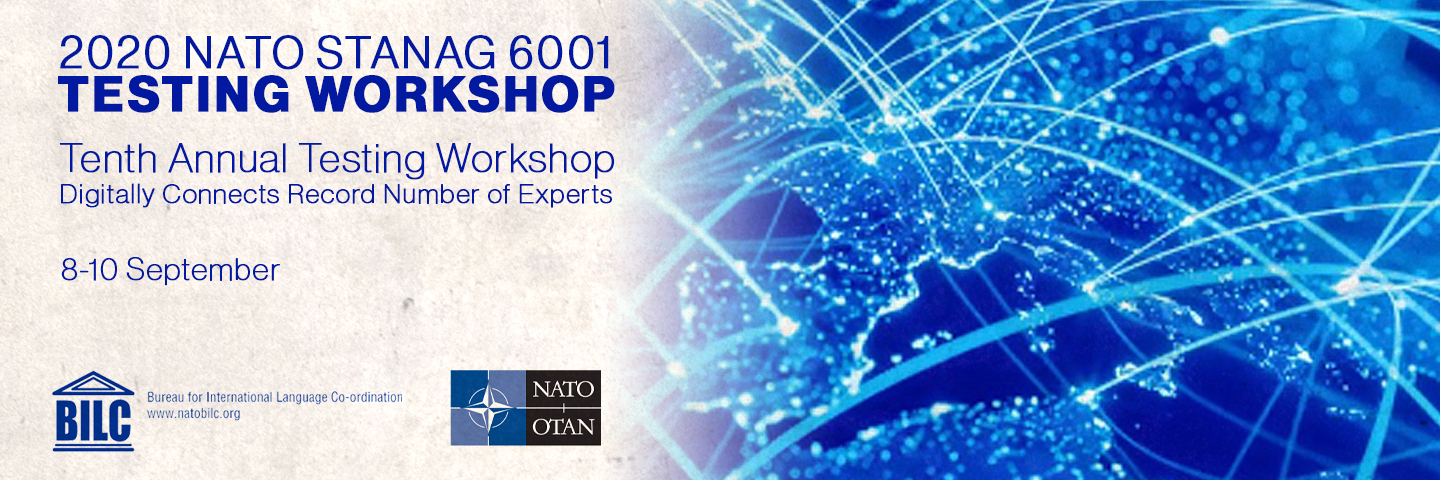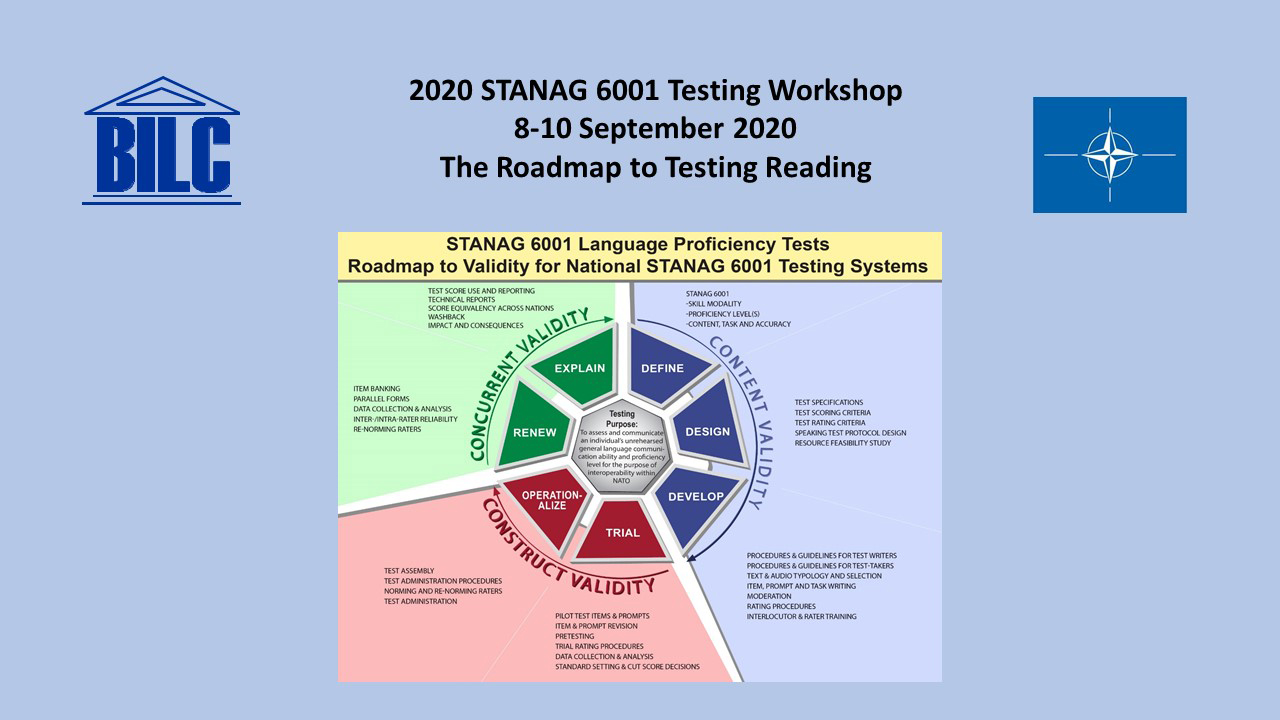
Annual NATO Language Testing Workshop Digitally Connects Record Number of Experts
By Dr. Michael W. Campbell
Partner Language Training Center Europe
George C. Marshall European Center for Security Studies
GARMISCH-PARTENKIRCHEN, Germany (Sept. 22, 2020) – Language testing professionals from 30 NATO and partner nations took part in the first online STANAG 6001 Testing Workshop from Sept. 8 to 10.
NATO’s Bureau for International Language Coordination organizes testing workshops annually to promote the standardization of language testing based on the NATO standards for language proficiency called Standardization Agreement 6001 or STANAG 6001.
This year’s workshop could not take place in Bucharest, Romania, as originally planned; therefore, BILC leadership, chaired by Branka Petek from the Republic of Slovenia, opted to offer the workshop online.
“BILC has been conducting STANAG 6001 Testing Workshops for ten years now,” Petek said. “We cannot lose the momentum of our standardization efforts. It is important for BILC language testers to remain connected, even if it is just digitally.”
The positive response of NATO and partner nation language testing specialists re-enforced the decision to go online.
More than 90 participants signed up for the workshop, almost twice the number of previous in-person workshops. Although unable to partake of the beauty of Bucharest and the comradery of face-to-face interaction, the online format afforded opportunities to testing experts who have been unable to participate in past events due to time and resource constraints. Instead of extending one nomination per country, BILC could accept up to three nominations from each nation.
Romania hosted the event along with the Marshall Center’s Partner Language Training Center Europe, utilizing the videoconferencing platform, “BigBlueButton.”
Col. Corina Ispas, head of the Romanian national STANAG 6001 testing organization and the Romanian host, said, “Organizing the workshop this year brought us new challenges. For example, time zones had to be taken into account to accommodate the participants in Europe and North America. PLTCE was very helpful with the technological and logistical issues.”
The theme of this year’s event was “The Roadmap to Testing Reading” and Peggy Garza, BILC associate secretary and chair of the English Language Programs Department at PLTCE, provided context in her plenary presentation encouraging the participants to reflect on the online nature of this year’s workshop and to consider how to have meaningful dialog and to promote standardization of language testing in a digital environment.

The plenary sessions were a snapshot of the truly multinational effort with speakers from the U.S., Canada, and six European nations.
One of the plenary highlights was a report by Ispas on the results of a survey she conducted with 26 NATO and partner nations on STANAG 6001 testing during the COVID-19 pandemic.
“National STANAG 6001 testers are struggling with how to cope with testing in today’s environment with social distancing and other restrictions in effect,” she said. “Testing was not put on a lockdown during the pandemic. The workshop provided an opportunity to share experiences and lessons learned. We realize that we are in this together.”
After the plenary sessions and for more interactive forums, participants could choose to join eight small-group sessions held over two days on topics of particular interest to testing specialists.
In addition, participant questions were addressed during the “Ask the Expert” panel on topics ranging from the optimal timing for reading tests to computer adaptive testing.
“In the present situation it is important to continue offering the possibility to meet and discuss professional topics as the occasions are rare and therefore even more valuable,” Petek said.
An important goal of the workshop and an ongoing conversation in the BILC community is to find ways of extending the standardization of testing to the actual items on the test and the feasibility of doing this online.
Each country’s STANAG 6001 testing team is responsible for designing the test and administering it to their candidates.
One of the most costly steps in terms of both time and resources is the process of item moderation, essentially the vetting of each item, or task, by an expert panel.
This moderation takes place under rigid specifications and procedures; the testing community has discussed ways of building an item bank that could be used by BILC member nations, thus saving time and supporting standardization across the testing landscape.
The 2020 online workshop became a living laboratory for exploring the viability of performing multinational item moderation in six online item moderation breakout rooms led by testing experts from Canada, Republic of Croatia, Republic of Estonia, Republic of Latvia, Romania, Slovak Republic and Republic of Slovenia.
“This is truly a ground- breaking endeavor. Not only are we bringing different nations together to review to test items, but we are also doing this using an online platform,” Garza said.
The 10th Annual STANAG 6001 Testing Workshop was an unqualified success. Apart from the ever present technology issues of the online environment, it demonstrated the desire for continued and expanded interaction among members of the NATO-BILC language teaching and testing community.
The energy expressed during the sessions and the post-workshop sentiments affirmed the importance during these times of separation of remaining connected whether online or sitting next to each other.
Mzia Skhulukhia from Georgia summed up the importance of this event, “…my belated but heartfelt thanks for the event which proved that there are no borders between nations if they are brought together as skillfully as you all did under the BILC umbrella… Thanks to your expertise, the virtual world turned to be less threatening, and more and more trustworthy.”